April 14, 2025 | 16:14 GMT +7
April 14, 2025 | 16:14 GMT +7
Hotline: 0913.378.918
April 14, 2025 | 16:14 GMT +7
Hotline: 0913.378.918
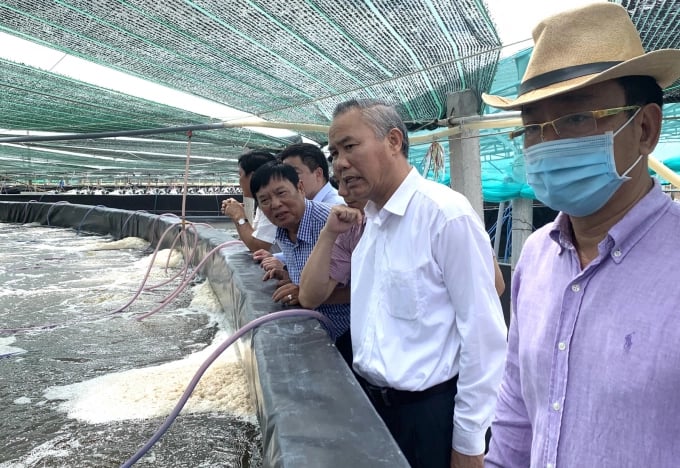
Deputy Minister of Agriculture and Rural Development Phung Duc Tien (middle) and Vina Cleanfood’s chairman Vo Van Phuc (right) visit the floating ponds in the farming area. Photo: Huu Duc.
Vietnam Clean Seafood Corporation (Vina Cleanfood) has been investing heavily in agriculture, completing a high-tech shrimp farming area which has higher productivity in the last two years.
In the vast shrimp farming area on the My Thanh River, adjacent to the East Sea, in Lieu Tu commune, Tran De district, Soc Trang province, a large-scale high-tech shrimp farm has just emerged.
Vina Cleanfood is one of the leading seafood processing and exporting enterprises in Soc Trang province. The 15-year-old company has been investing heavily in aquaculture, building a complete shrimp farm on an area of 140 hectares.
This year, its shrimp farm enters the second year of operation. Inside the facility, all rearing ponds must follow strict requirements of hygiene and disease prevention. Workers are equipped with protective clothing and visitors must disinfect before entering the farming area.
The farm area is designed with a self-filtering and continuous culture water pond system. On the ground, nearly lined 240 floating ponds are built with lightweight concrete structure, being connected to the electrical system, water supply and drainage pipes and covered by sunshade grid.
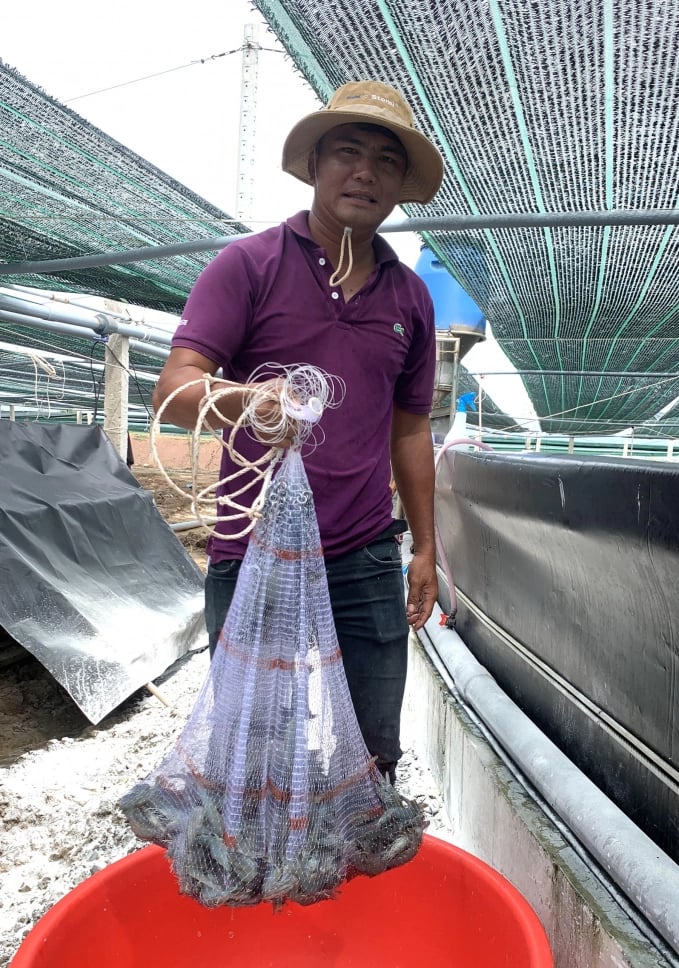
An engineer collects shrimps cultured in floating ponds at Vina Cleanfood’s shrimp farm. Photo: Huu Duc.
Aquaculture engineers at the farm said the water is filtered and cleaned before being poured into the ponds. Quality of shrimp seed are also strictly controlled before they are put in the ponds.
Shrimp farming process is established based on the application of high technology, suitable with soil and biological conditions. Engineers closely check aquatic food and bioproducts and antibiotics are not allowed. The farm has a factory specializing in manufacturing probiotics with capacity of 6,000-8,000 liters/day.
In 2020, Vina Cleanfood raised three white shrimp crops per year. The yield of 1ha water surface reaches 12 tons/crop. By the end of October, the farm harvested more than 2,000 tons. Next year, the productivity is expected to hit the maximum of 3,500 tons.
The quality of shrimp meets the Aquacutlure Stewardship Council (ASC) standard which is eligible to export to the EU.
Invest in good products
Vo Van Phuc, Vina Cleanfood’s chairman said the company has invested more than VND350 billion (US$15 million) to establish an advanced farming area, ensuring good control of each processing stage.
According to Phuc, this is a new shrimp farming model that has proven success by rigorous experience of a leading seafood company in Vietnam. In addition, Vina Cleanfood’s engineers have also improved and added some technical measures to suit to coastal shrimp farming areas in Soc Trang province.

High-tech shrimp farming in floating ponds of Vina Cleanfood. Photo: Huu Duc.
He said high-tech shrimp farming could considered the second major transformation of Vietnam's shrimp.
In the past, Vina Cleanfood has successfully experimented with small-scale farming. Later on, to have origin certification to export, the company began expanding the scale of farming areas.
However, in the Mekong Delta region, there are not many enterprises investing in high-tech farming sector. The farming area of Vina Cleanfood only meets 30% of the factory’s processing capacity.
Soc Trang province has a brackish water shrimp farming area of nearly 55,000 hectares. In the past 3 years, the canvas-lined shrimp farming model accounts for about 30% of the total area. Thanks to increased productivity, shrimp production increased by 2-3 times.
"The hi-tech shrimp farming model does not need a large area of land, the 1-2ha farming households can still apply. From the experience of Vina Clearnfood, we are ready to provide technical assistance to cooperatives and farmers."
The door is open for many businesses to promote their resources and bring the Vietnamese shrimp industry reaching out the world.
Authors: Huu Duc - Trong Linh. Translated by: Ha Vy. Edited by: Duc Huy.
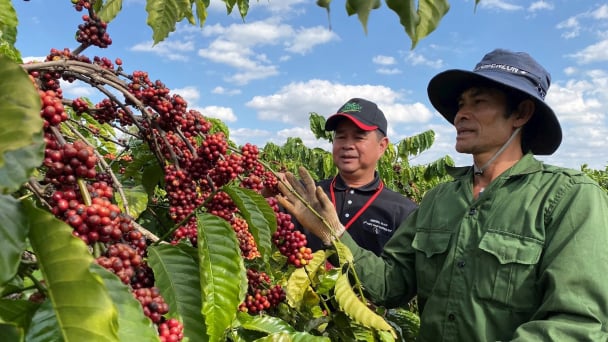
(VAN) Businesses emphasize fairness and equality when integrating social factors into their sustainable development strategies.
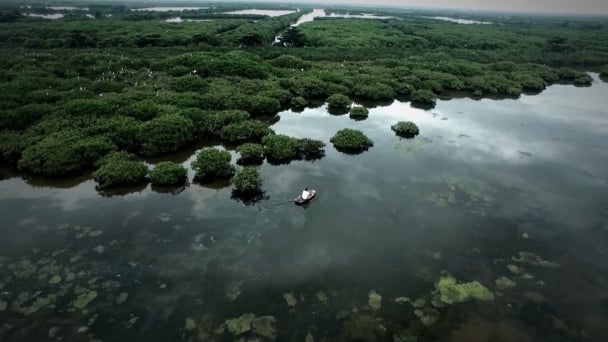
(VAN) French organizations and enterprises propose that Thai Binh province provide potential and long-term cooperation contents related to climate change response and green industrial development.
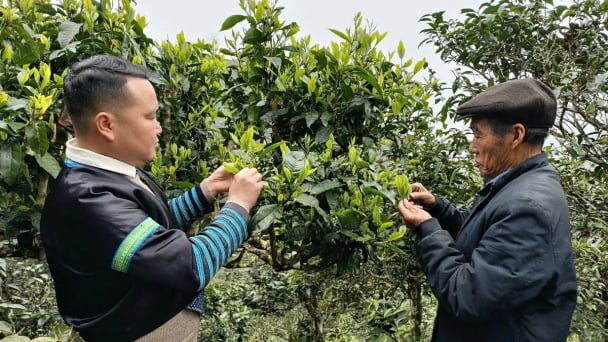
(VAN) Shan Tuyet tea is considered a 'heavenly treasure'. The H'mong people allow the tea to grow naturally, adhering to organic production principles, with the aim of exporting the product.
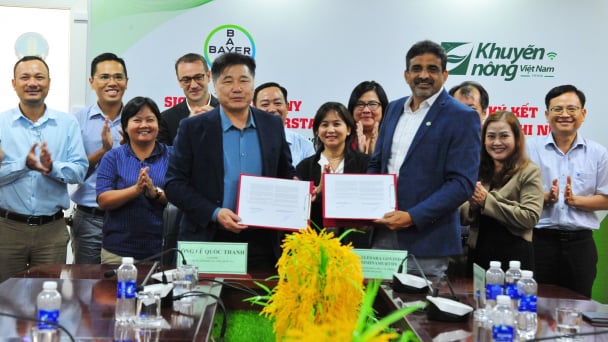
(VAN) Bayer Vietnam and the National Agricultural Extension Center have signed a partnership agreement to expand the development of effective and safe farming models for rice, durian, and coffee.
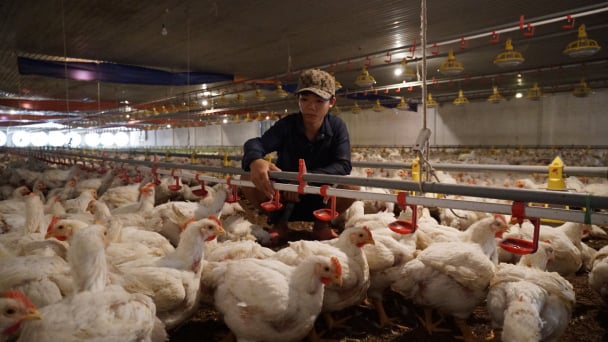
(VAN) Tay Ninh province possesses all the favorable conditions, from natural advantages to geographic location and social harmony, to drive economic development, particularly in attracting investment and advancing modern livestock farming.
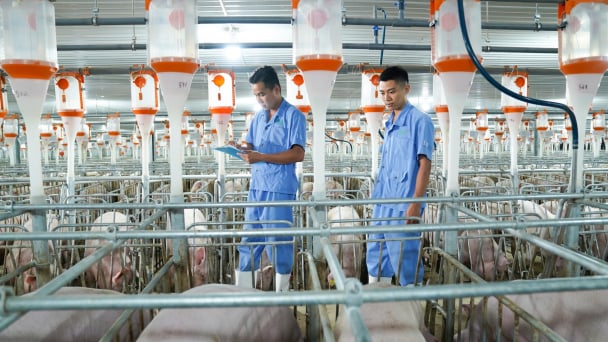
(VAN) Notably, every link in BAF's entire closed livestock value chain Feed - Farm - Food has received international certification.
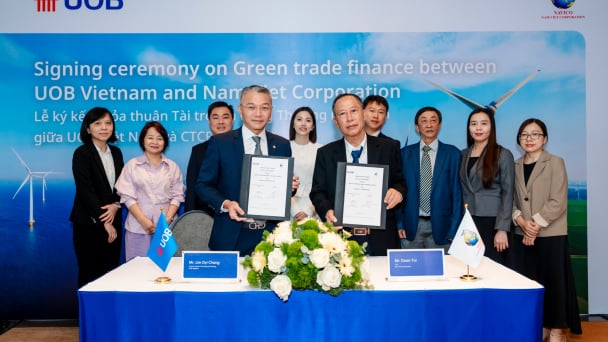
(VAN) UOB Vietnam has recently signed a green credit agreement with NAVICO to develop sustainable aquaculture that meets international standards.